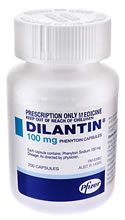Top Class Actions’s website and social media posts use affiliate links. If you make a purchase using such links, we may receive a commission, but it will not result in any additional charges to you. Please review our Affiliate Link Disclosure for more information.

Dilantin was initially approved by the U.S. Food and Drug Administration (FDA) in 1939, and has been used to treat many conditions over the years, despite only being approved to treat specific mental disorders.
While it is illegal for manufacturing companies to market any drug or product for unapproved purposes, it is not illegal for doctors to prescribe drugs for unapproved reasons.
Dilantin has been one of the most popularly prescribed anticonvulsants throughout the world including in countries such as Britain, India, Australia, and, of course, the United States.
The rights of brand-name Dilantin now belong to Pfizer, but it was originally developed by Mylan Laboratories, which was also known as Bertek Pharmaceuticals. Pfizer later acquired the company, and the rights to Dilantin with its takeover. Like with many of their products, Pfizer aggressively marketed Dilantin as the premier choice drug for its purpose, and collected mass rewards for their efforts. Thousands of Dilantin prescriptions are written every year, earning millions for Pfizer.
Unfortunately, numerous injury reports have linked the drug to severe Dilantin side effects. In particular, this medication is one of the many drugs that has been accused of inducing the extreme skin reaction, Stevens Johnson Syndrome (SJS), in patients.
This infamous allergic reaction is often recognized by the red or purple lesions it leaves on its victims, and requires emergency medical intervention to prevent life-threatening consequences.
Numerous prescription and common over-the-counter drugs such as ibuprofen have been linked to SJS. Medical experts note that sulfur-based medications have been brought up most often, which also includes Dilantin.
Unfortunately, not many of these popular drugs list Stevens Johnson Syndrome on their labels as a possible side effect.
Numerous Dilantin lawsuits have been filed against Pfizer and other drug manufacturers for failing to warn their patients about the possibility of SJS and its more severe form, Toxic Epidermal Necrolysis (TEN). Many of these plaintiffs report that they are contending with life-long consequences, including blindness, skin scarring, and internal organ damages because of SJS.
Overview of Stevens Johnson Syndrome
Stevens Johnson Syndrome and Toxic Epidermal Necrolysis are very rare conditions, with only 300 new cases diagnosed per year in the United States.
It normally occurs within the first two weeks of starting a medication, beginning with flu-like symptoms, and it occurs in adults more often than children.
The main difference between SJS and TEN is the amount of surface area the lesions consume. SJS can affect 30 percent of the skin’s surface, while TEN can be as high as 90 percent. Patients report that the lesions caused their skin to detach and melt off their body, creating the illusion of burn scarring.
In fact, due to the nature of the injuries of these conditions, patients are often treated in burn units, with skin grafts often being required to replenish the lost skin. Other SJS side effects include internal organ damage, blindness, and death.
Many patients insist that they never would have taken their medications if they had known that SJS and TEN were possible side effects.
In general, Dilantin SJS lawsuits are filed individually by each plaintiff and are not class actions.
Do YOU have a legal claim? Fill out the form on this page now for a free, immediate, and confidential case evaluation. The attorneys who work with Top Class Actions will contact you if you qualify to let you know if an individual lawsuit or class action lawsuit is best for you. Hurry — statutes of limitations may apply.
ATTORNEY ADVERTISING
Top Class Actions is a Proud Member of the American Bar Association
LEGAL INFORMATION IS NOT LEGAL ADVICE
Top Class Actions Legal Statement
©2008 – 2024 Top Class Actions® LLC
Various Trademarks held by their respective owners
This website is not intended for viewing or usage by European Union citizens.
Get Help – It’s Free
Help for Victims of Dilantin Stevens Johnson Syndrome
If you or a loved one were diagnosed with Stevens Johnson Syndrome (SJS) or toxic epidermal necrolysis (TEN) after taking a prescribed or over-the-counter medication like Dilantin, you may be eligible to take legal action against the drug’s manufacturer. Filing an SJS lawsuit or class action lawsuit may help you obtain compensation for medical bills, pain and suffering, and other damages. Obtain a free and confidential review of your case by filling out the form below.
An attorney will contact you if you qualify to discuss the details of your potential case at no charge to you.
Oops! We could not locate your form.












